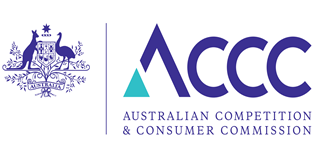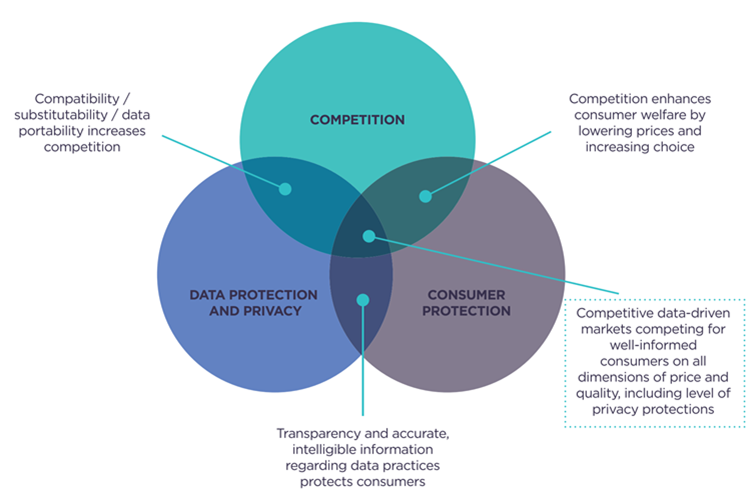Emerging approaches of the digital regulator
21.09.2020Australia’s Digital Platforms Inquiry

As digitalization progresses, governments around the world are increasingly reviewing how digital services fit into their existing frameworks and whether new ones are necessary. From social media platforms to offering linear broadcasting content online, many governments are seeking to reimagine the sector. Thus, an increasing number of governments are asking which regulatory mechanisms should be used to affect digital services, whether new regulations should be created, and under which regulatory body do these services fall? Efforts to answer these questions are already underway in Australia, the United Kingdom, and Ireland. This section examines how Australia is addressing digital regulation and how to structure a regulatory authority with the jurisdictional scope to oversee these issues.
From 2017 to 2019, the Australian Competition and Consumer Commission (ACCC) undertook a digital platforms inquiry to assess the impact of digital search engines, social media platforms, and other digital content aggregation platforms (collectively called digital platforms) on competition in the media and advertising sectors. Rather than recommending the creation of a new regulatory body specifically to oversee these services, the ACCC recommended supplementing the mandates of existing regulatory agencies to include digital services. This case study demonstrates how and why the inquiry was framed to cover digital platforms within the context of competition, and what led the government to abstain from creating a new digital platforms-specific regulator.
Identifying the goal and scope of the inquiry
Preceding the inquiry, the government noted declines in advertising expenditures in print newspapers, which led to “growing concerns that digital platforms are affecting traditional media’s ability to fund the development of content. Rather than framing this as a media-specific matter, the government framed it as a competition and consumer protection concern that could be investigated through powers granted by the Competition and Consumer Act 2010. In 2017, Treasurer Scott Morrison directed the ACCC to hold a public inquiry into the impact of digital platforms on the state of competition in the media and advertising markets. This formed the inquiry’s terms of reference (ToR). In particular, the ToR sought an analysis of these effects in relation to the supply of news and journalistic content, and the implications of this for media content creators, advertisers, and consumers.
With a clear goal and scope of work formed, the ACCC set about narrowing the parameters of the inquiry. In the issues paper, the ACCC narrowly defined digital platforms – for the purpose of this inquiry – as those that provide media content, social interaction, or search functionality to attract consumers to the platform and then sell advertisers access to these consumers (ACCC 2018). It also provided relevant examples of such platforms, noting that the inquiry was not targeted at any particular entity. Simultaneously, the ACCC provided clear definitions for the other key elements in the ToR, including news and journalistic content, choice and quality, and media and advertising services. The ACCC then demonstrated its understanding of these industries by providing the data it had collected up to that point on their current business practices, potential areas for concern, and dealings with one another. Together, the ToR and the ACCC’s issues paper established a clear starting point with transparent motives.
Refining the scope through public feedback
Throughout all stages of the inquiry, the ACCC solicited stakeholder input for three main purposes:
- further narrowing the scope of the inquiry;
- collecting information on the considered topics; and,
- considering feedback on the preliminary and final reports, and accompanying recommendations.
The ACCC requested comments on the scope of the inquiry, including on which digital platforms were relevant to the inquiry and whether the overall scope should be expanded. To collect as much feedback as possible, the ACCC held forums and meetings throughout 2018 and 2019 with journalists, advertisers, consumers, and small businesses – the results of which were made publicly available. This helped to create a transparent process with significant participation. Notably, the preliminary report alone received 125 written submissions, not counting those submitted confidentially (ACCC 2019a).
Determining the type of regulatory action required
In June 2019, the ACCC issued the final report for the inquiry. It detailed the impacts of digital platforms on each of the stakeholders defined during the first half of the consultation (ACCC 2019b). One of the ACCC’s findings was that news media suffered from a lack of negotiating power under the new digital paradigm. To remedy this, the ACCC found that digital platforms should create codes of conduct to govern these relationships. These codes would be submitted to the Australian Communications and Media Authority (ACMA) for oversight. The ACMA and ACCC would rely on long-standing channels of collaboration to consult on these matters (ACCC 2019b).
The ACCC also directly highlighted the importance and intersection of privacy and consumer protection with competition, illustrated in the figure below. In exploring this overlap, the ACCC recommended strengthening the Australian Privacy Act and reforming privacy laws in the country. This included tasking the Office of the Australian Information Commissioner (OAIC), the data protection authority, with establishing a privacy code for digital platforms.

Source: ACCC 2019b.
Expanding duties of existing regulators
In its final report, the ACCC recommended expanding the roles of existing regulatory authorities, such as ACMA, rather than create a new digital regulator (ACCC 2019b). The ACCC received “strong submissions” against the establishment of a new regulator or agency because it “would take considerable time to build the skills already possessed by existing regulators and, being so targeted, would run a clear risk of regulatory capture.” Instead, the ACCC determined that “more effective and targeted oversight would be provided by supplementing the functions of existing enforcement and regulatory agencies including the ACCC, the ACMA and the OAIC, which are already working very well together.”
Having identified the ACMA as the primary authority for overseeing digital platform regulation, the ACCC included a range of new oversight functions for the ACMA, including to:
- determine which digital platforms would be required to adopt codes of conduct governing their commercial relationships with news media businesses;
- hold consultations on the development of these codes of conduct; and,
- be vested with appropriate investigative and information-gathering powers, as well as sufficient capacity to impose adequate sanctions for non-compliance.
The ACCC also recommended that the ACMA (or another independent regulator) oversee voluntary initiatives by digital platforms to help users identify reliable and trustworthy news media. The ACMA would monitor digital platforms’ efforts to assist their users in order to protect the interests of Australian consumers.
Notably, the ACCC recognized that these new rules and regulatory functions would impose costs on the government and digital platforms. The ACCC, ACMA, and OAIC would each be responsible for new functions that would require additional government funding. For digital platforms, they would be subject to new regulatory compliance costs owing to reporting obligations, negotiation, and development of new codes of practice, and making internal changes to their business practices. Ultimately, the ACCC considered that these costs would not likely be disproportionate to the overall benefits to consumers and news media businesses and would therefore be warranted.
References
ACCC (Australian Competition and Consumer Commission). 2018. Digital Platforms Inquiry: Issues Paper. Canberra: ACCC. https://www.accc.gov.au/system/files/DPI%20-%20Issues%20Paper%20-%20Vers%20for%20Release%20-%2025%20F.._%20%28006%29.pdf.
ACCC (Australian Competition and Consumer Commission). 2019a. Digital Platforms Inquiry: Preliminary Report. Canberra: ACCC. https://www.accc.gov.au/focus-areas/inquiries-ongoing/digital-platforms-inquiry/preliminary-report-submissions.
ACCC (Australian Competition and Consumer Commission). 2019b. Digital Platforms Inquiry: Final Report. Canberra: ACCC. https://www.accc.gov.au/system/files/Digital%20platforms%20inquiry%20-%20final%20report.pdf.
Last updated on: 19.01.2022